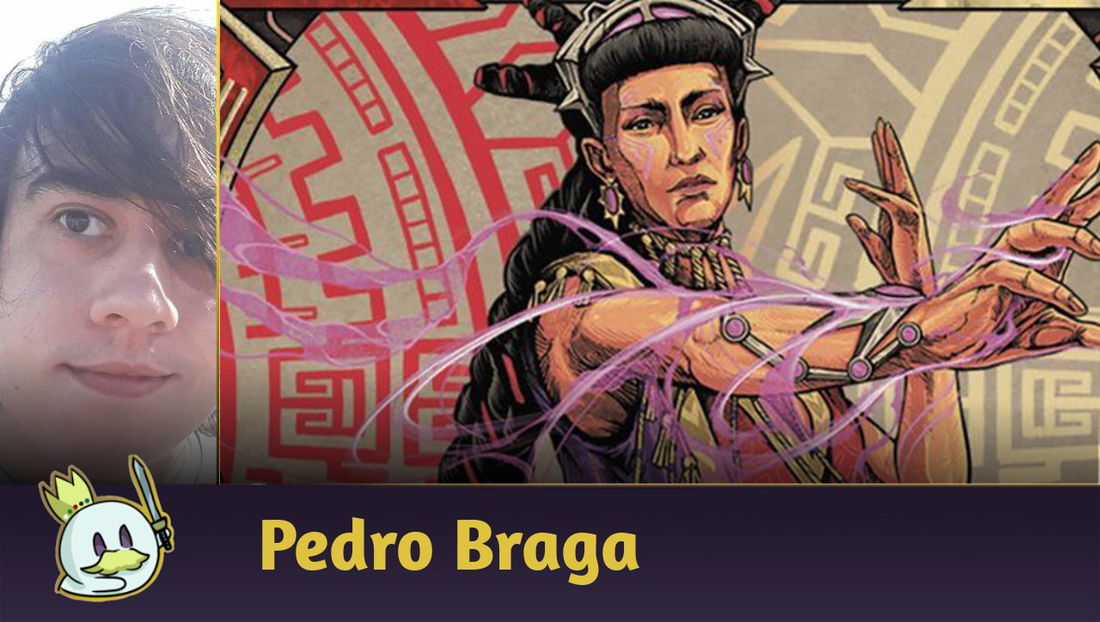As the weeks since the release of Bloomburrow pass, the Standard Metagame begins to solidify and, naturally, new strategies emerge to find a gap between the best decks in the format and guarantee their results in major events.
One of these highlights from the last wave of tournaments over the weekend was Azorius Aggro, which runs Warden of the Inner Sky and cards that put tokens into play to create an interactive game plan, where the number of permanents in play and spells that care about artifacts stand out.
In this article, we discuss the new competitor in the format and present a Sideboard guide for the main matchups in the current Metagame.
The Decklist
This is the list I've been using since the first results in the Challenges appeared, being heavily inspired by the list of the player Hamuda.
There is still no consensus on the ideal numbers and/or how the list really wants to behave, but most of the divergences are found in the four slots where Hamuda used Regal Bunnicorn and, in this list, where I run Cryptic Coat and Regal Bunnicorn.

Regal Bunnicorn is a powerful clock with the number of permanents that this deck puts into play and can generate a lethal attack with Steel Seraph in addition to being a gigantic blocker in front of Aggro, but it is a bad topdeck in longer games or after a sweeper like Temporary Lockdown.
Cryptic Coat is slower, but gives us more gas in the game as it extends and works as a small clock as well. The reason for using both as 2-of is precisely to cover both extremes of the game.
Finally, there are versions running Norn’s Inquisitor, which interacts directly with the deck’s game plan, especially with Warden of the Inner Sky, being another suitable option without major concessions to be played.
Maindeck

The heart of our strategy.
Warden of the Inner Sky is the main reason for this deck to exist given its interaction with Novice Inspector and Spyglass Siren, both creatures that put tokens when they come into play and from which we can tap both to put a counter on our one-drop, usually strengthening it enough to win the game in a few turns.
Case of the Filched Falcon offers another token and also interacts with this game plan by turning any artifact into a 4/4 with Flying, which is part of our alternative game plan.

Our alternative plan involves extracting value with Subterranean Schooner and our one-drops, and we can also enchant the vehicle or one of the tokens with Zoetic Glyph to turn it into a 5/4 with discover - an effect that we can use to our advantage with the tokens' sacrifice abilities.

Our third game plan involves cards that also interact with the rest of the deck: Steel Seraph grants evasion or Lifelink to Warden of the Inner Sky or any other large creature, and basically seals the game if it gives one of these abilities to Regal Bunnicorn, the closest thing to Embercleave that we have in the list.
Cryptic Coat offers more gas, and we can also use it for one of our creatures to attack freely, and Mockingbird is a novelty and another motivator to build this deck because, in addition to copying any of our creatures, we can use it to, for example, copy an opponent's Sheoldred, the Apocalypse in longer games and still have the advantage of flying for a lethal attack with it.

Our interaction.
Get Lost is the best removal white has in Standard today and provides good flexibility in dealing with creatures, Planeswalkers or enchantments - and there are some very specific cases where we run it on one of our creatures to create more tokens.
Spring-Loaded Sawblades interacts with our game plan and deals with almost any creature we need to resolve, in addition to becoming another win condition in the late game.

In addition to the best untapped lands we have in Standard with Adarkar Wastes and Seachrome Coast, we count on Restless Anchorage as another late-game threat and source of artifacts to enchant with our spells and/or use with our creatures.
Sideboard

Counterspells are still very necessary in Standard, and we need them despite being an Aggro deck.
Negate and Disdainful Stroke are here deal with sweepers or heavier cards, but with Cavern of Souls, we can't guarantee that Stroke will deal with Atraxa, Grand Unifier so we need Tishana's Tidebinder to at least prevent her from drawing four or more cards for the opponent.

Our removal package.
Get Lost is just as effective in the sideboard as it is in the maindeck, and so we run two more copies of it for games that need to be more interactive or where Spring-Loaded Sawblades doesn't work as well.
Destroy Evil deals with bigger creatures and also with troublesome enchantments, such as Temporary Lockdown, the worst enemy this deck can have.
Werefox Bodyguard works against Aggro even if it is removed with a Shock, and if we untap with it, we can use it to gain life in these games when necessary.

Loran of the Third Path is another answer against Temporary Lockdown, and it works in the mirror or in games against the Control version of Artifacts.
Sideboard Guide
Golgari Midrange
IN

OUT

Domain Ramp
IN

OUT

Gruul Prowess / Mono Red Prowess
IN

OUT

Boros Convoke / Jeskai Convoke
IN

OUT

Azorius Control
IN

OUT

Wrapping Up
If you have any questions or suggestions, feel free to leave a comment!
Thanks for reading!













— Comentarios 0
, Reacciones 1
Se el primero en comentar